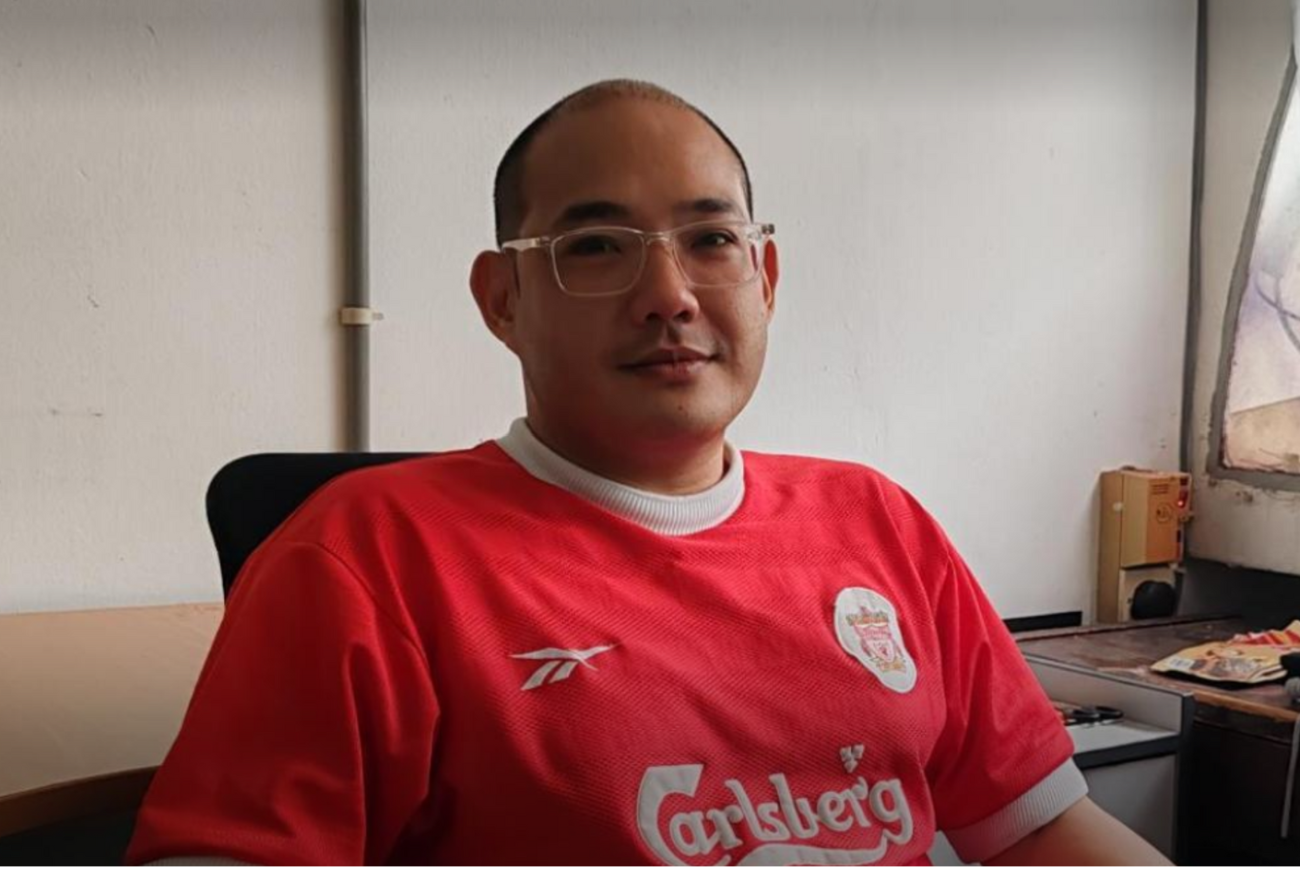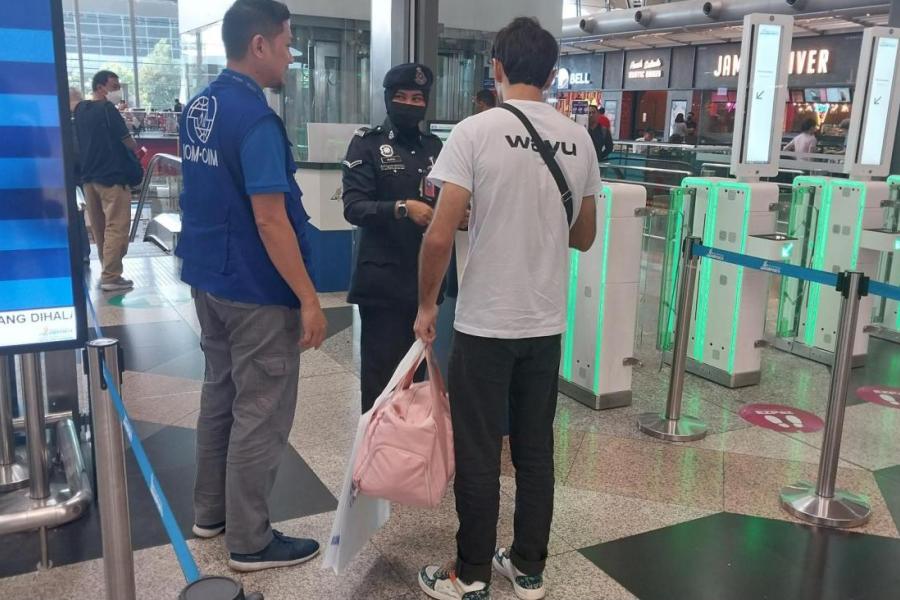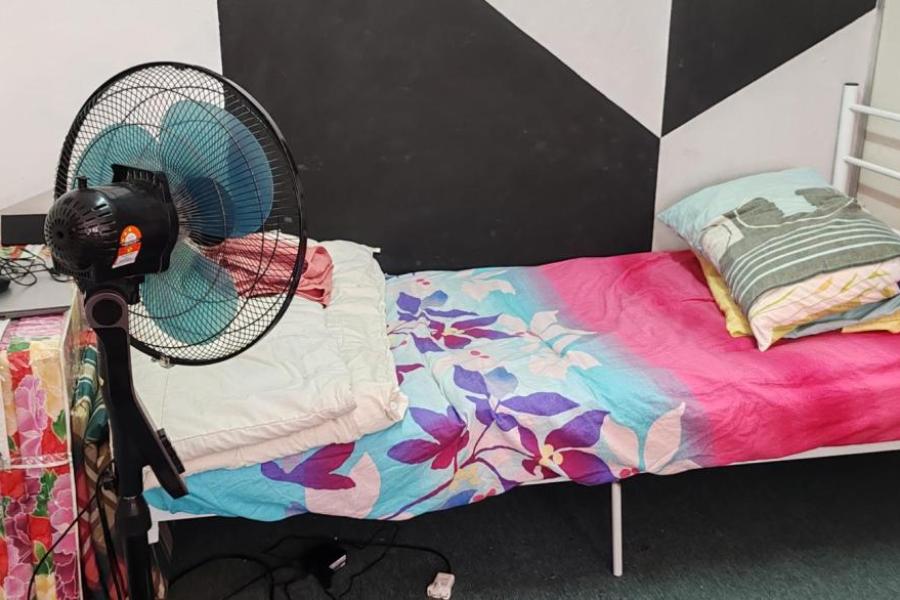From Scam Camp to Safety: A Couple’s Rescue in Cambodia

In December 2023, Benjamin and his wife were excited about their promising future.
In December 2023, Benjamin and his wife were excited about their promising future. They gave up their rented house in the Klang Valley in Malaysia, eagerly anticipating lucrative new jobs at a casino in Cambodia. These opportunities came through a friend of Benjamin’s wife, a Filipino with experience working in casinos.
Benjamin, a well-educated former consultant with expertise in software security and blockchain development, has extensive experience working with the Cambodian government. Thus, he was confident that his next career move would be seamless. However, little did Benjamin and his wife know that their lives would take a harrowing turn upon arriving in Phnom Penh. They were unexpectedly trapped by human traffickers and forced to work as scammers.
“The person who offered us the jobs appeared pleasant and friendly during the phone interviews, answering all our questions and concerns with ease. Even from online research, the company that we were supposed to work for seemed legitimate, with a proper website and a registration number, so we really believed we were in good hands,” remarks Benjamin.
After passing the immigration checks, a local Cambodian man drove them to their accommodation. Too exhausted from their flight and the late hour, Benjamin and his wife did not question the journey. Nearly four hours later, they turned up in a town surrounded by casinos and night entertainment outlets. The driver told them they will be staying in one of the quarters behind the casinos.
“It was a massive, gated compound, almost the size of Subang district. The barbed wire fences and security cameras made it look like a prison,” recalls Benjamin.
Despite the austere exterior, the compound housed various multi-story buildings, including shops, casinos, karaoke centres, nightclubs, restaurants and bungalows. It appeared to be a regular precinct, but no one could imagine the nightmare experienced by those inside, including Benjamin and his wife.
Something felt off when the couple reached the compound early in the morning, approached by several men who then took their passports. One of the men claimed they needed the passports for employment paperwork.
However, he eventually admitted his lie to Benjamin: “Sorry, but we lied to you. Your jobs never exist, but we do have something we need you to do.”
For several days to come, Benjamin and his wife were taken to different floors to observe workers making phone calls to people around the world, pretending to be customer service representatives asking for their bank details. The couple tried to remain calm and delayed participating in the scam.
The traffickers’ initial friendliness soon turned to aggression. Infuriated by Benjamin and his wife’s unwillingness to cooperate, they confined them in separate rooms a week after their arrival in the compound. Chained to the floor, the couple’s movements were limited inside tightly spaced cells, with soundproof walls and no proper ventilation.
“Traffickers often start with politeness as part of their manipulative tactics to lure victims into the scamming industry”, explains Benjamin.
It is no surprise that many victims, especially those in financial desperation, continue to fall into the traps to this day, not realising what they get themselves into until it is too late.
For weeks, Benjamin and his wife endured mental and physical abuse from the traffickers for refusing to perform scamming work. They received food and water only once in every few days and in little quantity, just enough to keep them alive. The traffickers also threatened to kill them and sell their organs. Fortunately, the wife managed to contact her family members just in time before the traffickers destroyed their mobile phones, prompting a rescue effort from the police over a month later.
The couple were escorted out of the compound alongside several other victims of different nationalities. The police immediately referred Benjamin and his wife to IOM Cambodia for further assistance, which included free medical treatment at the hospital after having been identified as victims of trafficking. Through the help of IOM Malaysia, Benjamin received some financial aid and a free flight return to Malaysia while his wife went to the Philippines to be with her family.
“We are very grateful and impressed by IOM’s efficiency in supporting us. We wouldn’t know what to do with our situation if it was not for IOM,” expresses Benjamin.
Despite their timely rescue, their case highlights the alarming rate of human trafficking incidents reported across South East Asia.
In 2023, the Office of the High Commissioner for Human Rights (OHCHR) reported that thousands of individuals were forced into online criminality by organised criminal gangs in the region. The situation was worsened by the COVID-19 pandemic. The Malaysian Ministry of Foreign Affairs found that approximately 90 per cent of Malaysians who have been victims of human trafficking were involved in international fraud syndicates. The high volume of cases calls for improved policies to protect individuals from being trafficked and support survivors of trafficking. In response to this serious issue, IOM continues to collaborate with governments and civil society organisations through policy advocacy and direct victim support.

Currently, Benjamin and his wife are staying in temporary accommodation provided by friends and family. Although they are now safe, the distressing event has left them with emotional and mental scars. In addition to financial loss, with all their money and belongings taken by the traffickers, both Benjamin and his wife are suffering from post-traumatic stress disorder.

Nonetheless, the difficult moments did not deter them from attempting to start over their lives. Benjamin and his wife are actively seeking work to help them get back on their feet. This time around, they are more conscientious of their next move.
“If anyone is looking for a job abroad, my advice is to be very careful when choosing a company and location. Do not fall into the traps of traffickers,” Benjamin concludes.
his story was written by Siti Munawirah Mustaffa, IOM Malaysia Communications Assistant, smustaffa@iom.int



